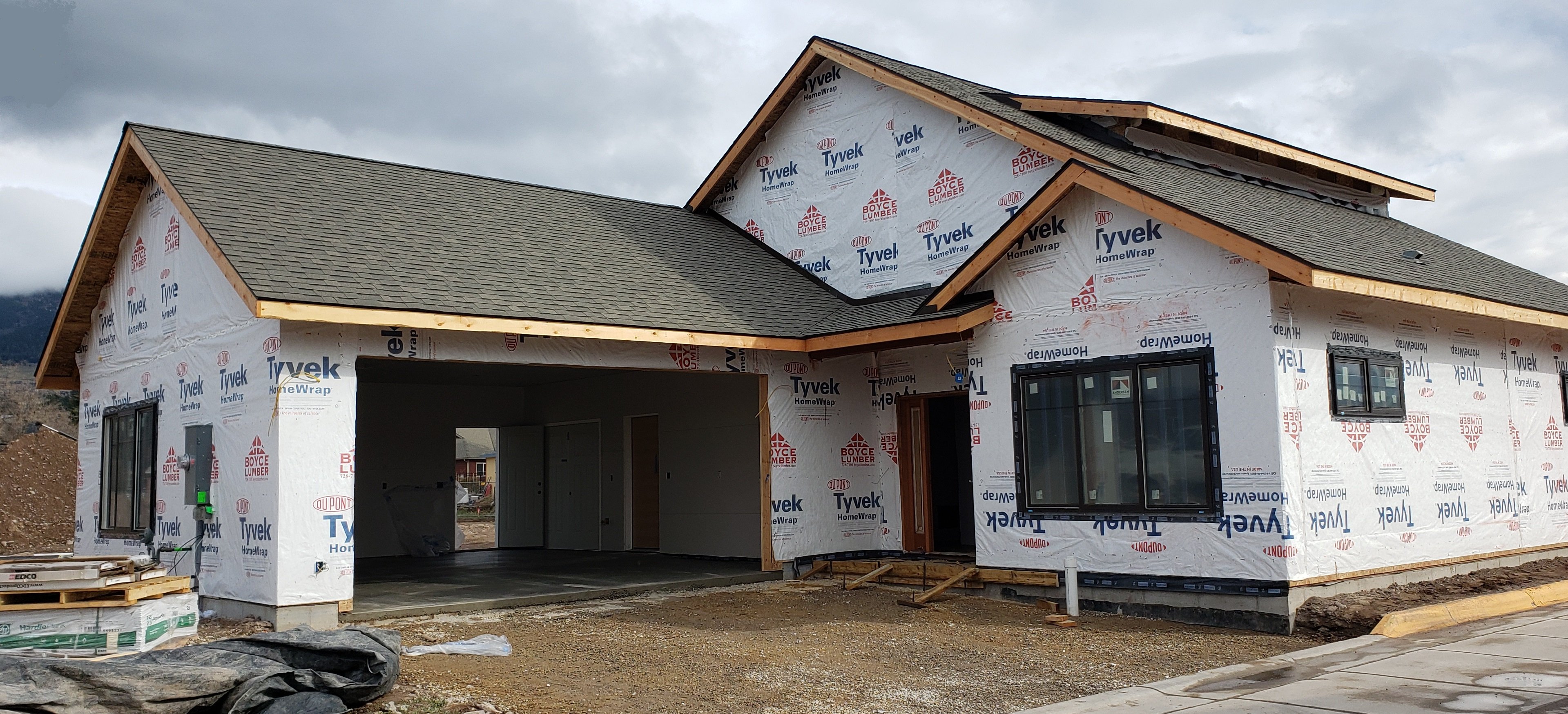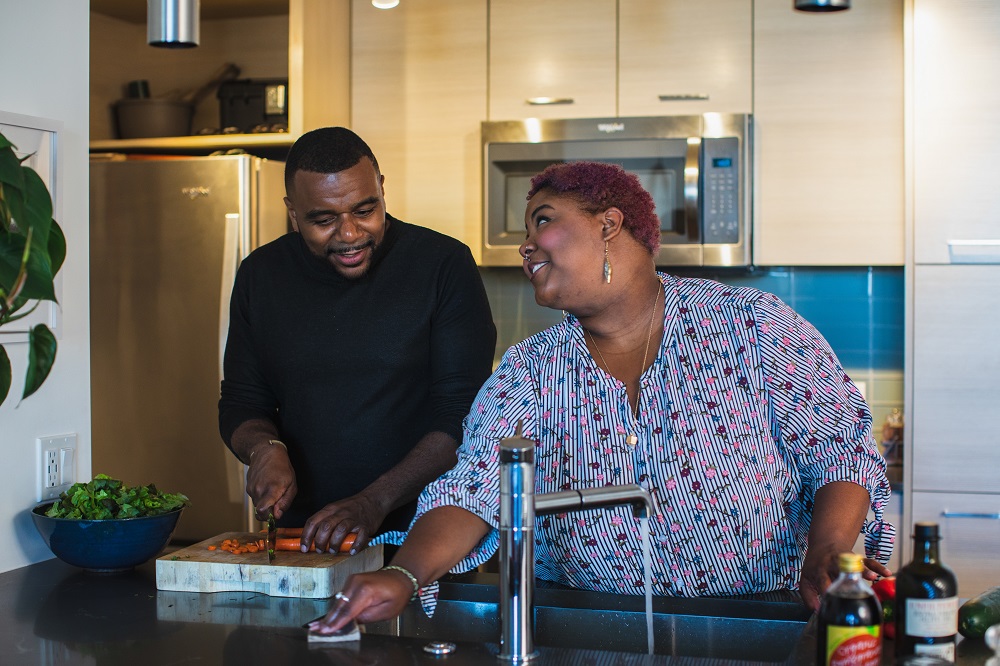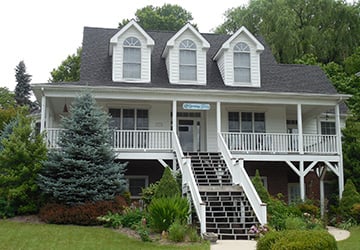Whether you're thinking about buying an existing home or having a new home built, there's a lot to be considered. First and foremost is your budget and timeline. Other factors you'll want to consider when searching for a new or existing home are your timeline, the location, warranties, and the layout of your home. Let's take a deeper look at what to expect when buying a new or existing home.
- Budget
- Timeline
- Financing
- Home Layout
- Accessibility
- Warranties
- Location
- Teardown
Staying Within Budget
Buying an existing home can help you stay within your budget more than having a house built. Depending on what the housing market looks like, you can expect to pay close to the listing price on an existing home. When you're having a new home built, you may find yourself adding more and more features or upgrades that can blow your budget quickly. Don't want manufactured countertops? Opt for granite, and you'll pay a lot more.
Upgrades can blow your budget when building a new home.
Timeline
When buying an existing home, it typically takes 60 days to close. Building a new house takes 7+ months, depending on the square footage. Other factors affecting the timeline when building a new home include last-minute changes like deciding you want hardwood floors instead of carpeting. For example, you might decide to move the washer and dryer into the master bathroom instead of having them at the end of the hall. Plumbing will have to be rerouted, and a separate space may have to be constructed, which takes extra time and money.

Financing
Most of us will need a home loan to purchase a house. If you're leaning towards buying an existing home, get pre-approved for a mortgage before searching for a home. If you're buying a newly constructed home, you can typically get financing through the builder, making it easier to qualify for a mortgage. Keep in mind that you may not have the option to negotiate the price or terms when buying a new home with builder financing.
You can typically finance new construction through the homebuilder.
Home Layout
When buying an existing home, you may be stuck with an older layout unless the house has been recently renovated. Older homes typically have many small rooms and fewer open spaces. Homes built in the last 10 years will have more open floor plans. Consider what type of layout you prefer and ask your real estate agent to find homes that match your criteria.
If you have an architect design your new house, you get to choose the layout. If you're buying a new home in a new development, the layout options may be restricted to the floorplans offered by the builder. New construction allows you to choose a modern layout that might include open spaces, more storage, and a master en suite.
Accessibility
Accessibility is another feature to consider when buying a home. Older homes typically have fewer accessibility options. If there's a chance you will have an older relative living with you in the future, or if you plan on living out the rest of your life in the home, having handicap accessibility will be necessary. Accessibility might include wider doorways, 1-level living spaces, no-curb showers, etc. You may find older homes that have been updated to accommodate the disabled, but you will have more accessibility options with a new house.
If you plan on living in a home for the rest of your life,
consider the handicap accessibility throughout the home before purchasing.
Warranties
Many homebuyers purchase a home warranty when buying an existing home. The warranty covers appliance replacements or air conditioning systems. Unfortunately, if the previous owner didn't maintain the appliances properly, the home warranty company may refuse to pay to update them. With older appliances, you may be better off asking the existing homeowner to replace them or offer repair credits before the closing date. Make sure changes like this are included in the buy-sell agreement or an addendum.
New homes are covered by a home warranty, which means you won't have to fix any problems for years. In addition, a builder warranty covers things that are permanent to the home, like plumbing, concrete floors, or electrical work. A 1-year builder warranty will cover workmanship and materials like siding, doors, and trim; a 2-year warranty covers HVAC, electrical systems, and plumbing. Some builders even offer extended warranties for up to 10 years. Extended warranties cover major structural problems that make the house unsafe, like a faulty roof that might collapse. Talk to your builder about warranty options before buying a new house.
Home warranties and builder warranties can
save you a lot of money in the years ahead.
Location
Another factor to consider when choosing a home is the location. New construction is typically further away from the city, where open space is available. If you work from home or don't mind a longer commute, a home located further from the city may be favorable.
With an existing home, you have the benefit of choosing a neighborhood with an established sense of community and possibly a more convenient location. For example, you may prefer to buy a house that's in the same school district your kids already attend. Or you may prefer to be close to transit, an option that might not be available in a new housing development.
When choosing a location to buy a house, consider the maturity of the landscaping. Existing homes tend to come with mature trees, which can help keep your home cool during the hot months. New homes tend to come with immature trees and landscaping. The benefit of buying a new home is you may have landscaping options from which to choose.
Teardown
When you want to live in a desirable neighborhood, but there aren't any houses for sale that meet your needs, consider buying the worst house on the block. This might mean buying a small house on an oversized lot or a dilapidated house that you tear down to build a new home. Where I live, replacing older homes with new ones is common in the university district. Small, outdated, 1-story houses get demolished and replaced by new 2-story houses. If you want to buy a home in a specific area, building a new house in place of an older one might be your best option.
Conclusion
Make a list of your must-haves when searching for a house to purchase. It can be challenging to find everything on your list, especially if you want to buy an older home. A new home will give you the flexibility to have the things you want in a house, but the additional costs can add up quickly. Talk to your real estate agent to determine whether buying an existing or a newly built home is in your best interest.














